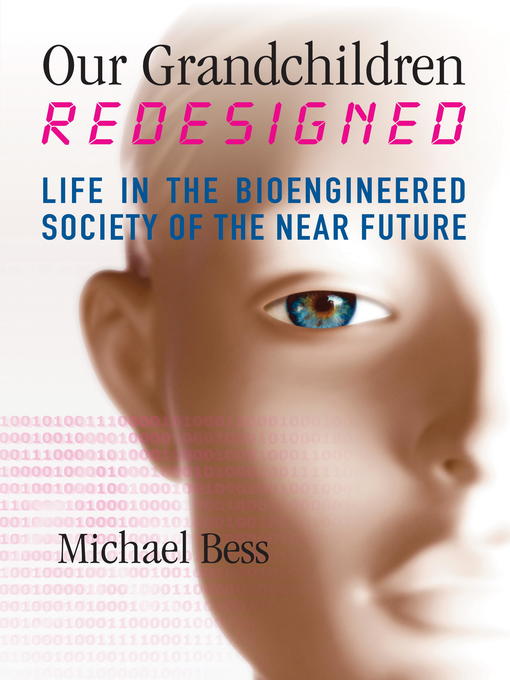
Our Grandchildren Redesigned
Life in the Bioengineered Society of the Near Future
زندگی در انجمن زیست مهندسی آینده نزدیک
کتاب های مرتبط
- اطلاعات
- نقد و بررسی
- دیدگاه کاربران
نقد و بررسی

July 1, 2015
An exuberant account of how biotechnology will vastly enhance not only our health, but our physical and mental abilities as well. This process, writes Bess (History/Vanderbilt Univ.; Choices Under Fire: Moral Dimensions of World War II, 2006, etc.), is already underway, with drugs, bioelectronics, and genetics all playing leading roles. Familiar names like Prozac, Viagra, and Adderall reveal that the progress of drugs has already come a long way in a relatively short period of time. Thought-controlled prostheses and bioelectronic implants for the deaf and blind remain rudimentary, but in the coming years, we should expect to see impressive advances. Although several decades away, the idea of altering the DNA germline to produce a "designer baby" makes most people uncomfortable, but major improvements will happen through epigenetics, through which we can influence gene expression without changing DNA. All these cheerful prognostications occur in the first 70 pages. In the remaining, more thoughtful, text, Bess discusses their implications. Will society consist of "Brave New World" castes of haves (who can afford their enhancements) and deprived have-nots? How many changes can Homo sapiens undergo and remain the same species? What does it mean to lead a good life? All the advancements, writes the author, "can also lead us to gradually lose our bearings on reality itself. The more enthusiastically we give ourselves over to artifice, the more likely we are to drift insensibly out of touch with the planet that sustains us, the body we were born with, and the core relationships of family and community that frame our existence." In the future, accelerating technology and unexpected, revolutionary events-most of which will never be predicted by futurists-may produce a society as alien as some of our tools. Bess delivers an insightful philosophical analysis of how we must adjust.
COPYRIGHT(2015) Kirkus Reviews, ALL RIGHTS RESERVED.

























دیدگاه کاربران